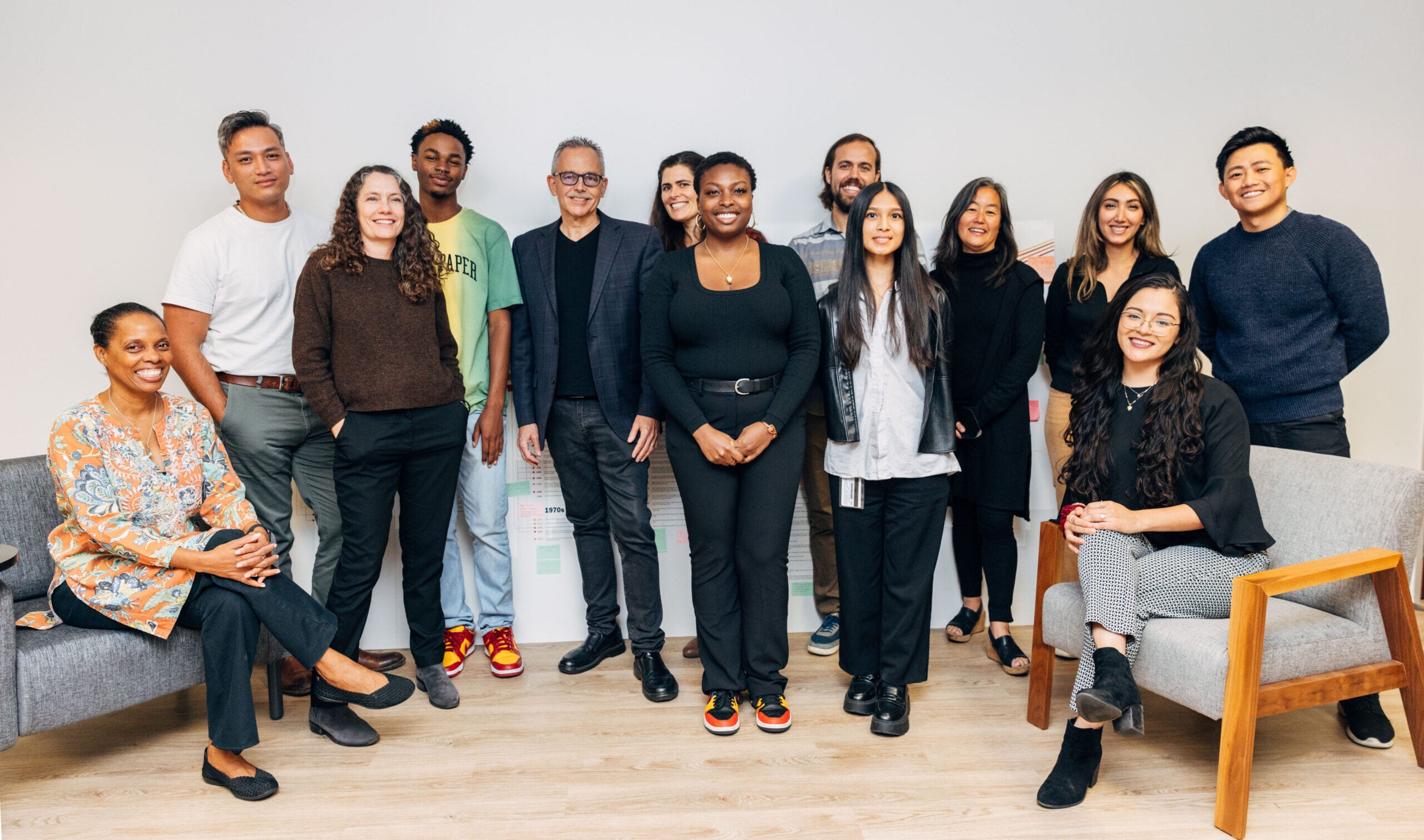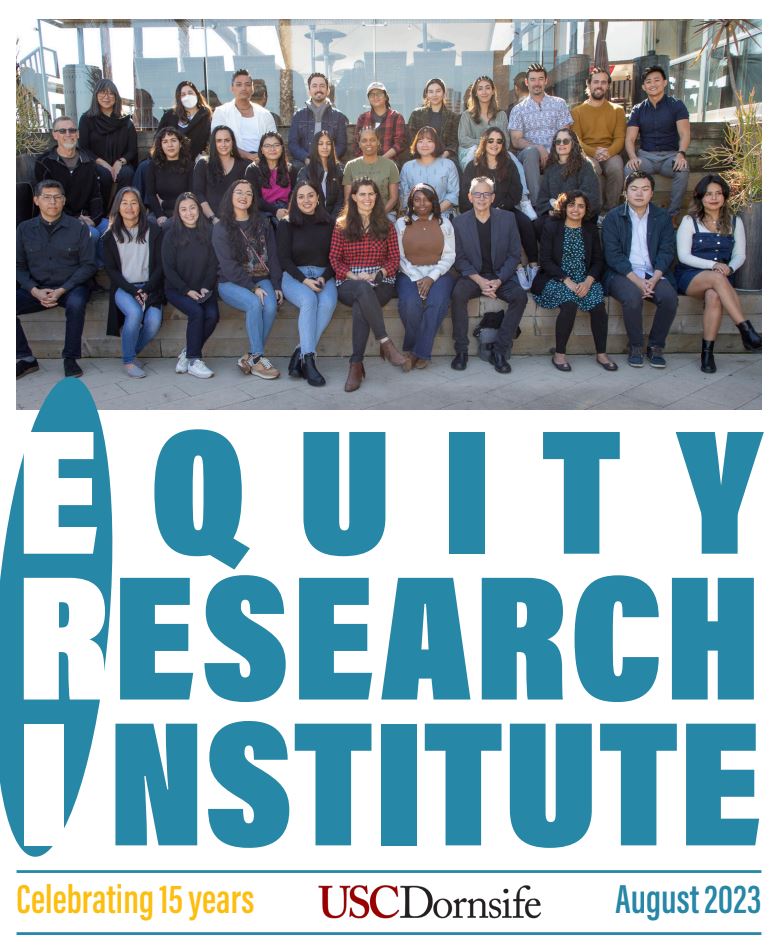About ERI
Welcome

Who we are
The USC Dornsife Equity Research Institute (ERI) produces data-driven analysis and rigorous research, leads convenings, engages strategic collaborations, and models effective, sustainable, racially-just research center.
At ERI, we provide data and analysis to power social change. ERI believes that long-term change is made when historically marginalized communities are empowered, can put forth proposals, and hold decision-makers accountable. And, when communities come together across race, space, and place, movements for change build and have an impact on greater scales of governance. One of the many elements required to make this sort of change is research – the niche occupied by ERI. As a university-based research organization with reach to affected communities through community-based organizations, funders, business leaders, and others, ERI has contributed reliable data in the areas of environmental justice, immigrant integration, regional equity, and movement building that is academically rigorous as well as relevant to policy debates.
ERI is a research unit housed within the Dana and David Dornsife College of Letters, Arts and Sciences at the University of Southern California. ERI is the entity resulting from the combination of two institutes: the Program for Environmental and Regional Equity (PERE) and the Center for the Study of Immigrant Integration (CSII), which were founded at USC in 2008.
Led by our Executive Director Professor Manuel Pastor, ERI currently has 20+ full-time staff along with graduate research assistants and undergraduate student workers, postdoctoral fellows, an advisory council of community partners, and a wide network of affiliated faculty members—both within USC and externally.
What we do
The USC Dornsife Equity Research Institute provides forward-looking, actionable research to support community-based organizations, funders, and other stakeholders.
ERI’s accurate, community-centered data and analysis are the basis of new narratives for equity. Our forward looking, actionable research supports the ecosystem of change by identifying new opportunities for investments, solidarity, and power building.
ERI’s key activities include:
- Producing data-driven analysis and rigorous research to inform movements and policy
- Leading convenings and communications that deepen and broaden our reach into key audiences
- Engaging in strategic collaborations that leverage our strengths for broader impact; and
- Modelling an effective, sustainable, and racially-just research center.
We work with cross-sectoral partners from a range of nonprofits, community organizations, foundations, research centers, government agencies, the university community, and businesses who align with our mission, vision, and approach to data and analysis.
ERI's priorities
ERI will work with our partners to develop theory, frameworks, and data analysis; advance new narratives and; convene communities of learning and practice. Over the next several years, ERI will focus on the following three priority areas:
-
Our work will support creating new coalitions around economic, social, and environmental justice by linking economic prosperity, environmental quality, and civic health with bridging of racial and other gaps.
-
Our work will challenge and nuance common narratives by applying a racial justice lens; by promoting the mutual interests of immigrant and native-born communities in the U.S.; and by supporting interethnic, intersectoral, and cross-movement collaborations in all of our research processes and products.
-
Our work will advance an understanding of, dialogue about, and funding towards building power among historically excluded communities by developing data-driven frameworks and tools for key learning and strategizing opportunities.
-
ERI is also committed to being a collaborative research center to increase our overall impact in our priority areas. Our aim is to achieve this by using centralized and collaborative practices, moving key stakeholders and audiences, and being a healthy, sustainable, and racially-just workplace.
ERI 15th Anniversary Magazine (August 2023)
Step into our world for a retrospective as we mark our 15th anniversary. Our special magazine is a window to our past, present, and the aspirations we’re building.

[Download Magazine Here]